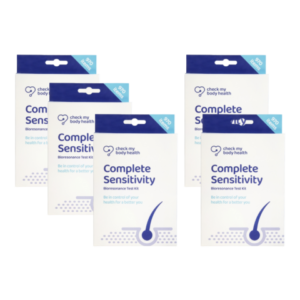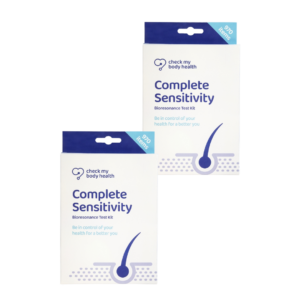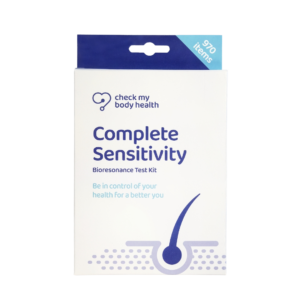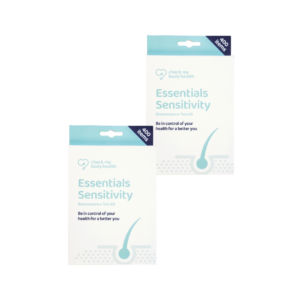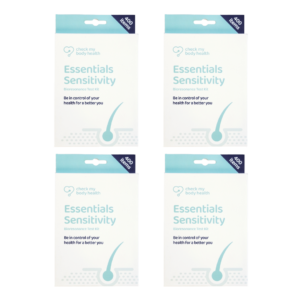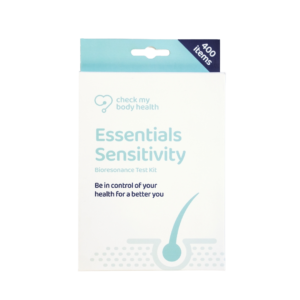Published Oct 3, 2020
The coronavirus pandemic is affecting our normal routines in all kinds of ways – from having to work from home (or not working at all) to being cut off from friends and family and pressing pause on our favourite hobbies.
These disruptions to our way of life can put further stress on our immune system, at a time when we need it to be running at full throttle. If you haven’t done so already, now is the time to start fighting back by prioritising our health. Making sure your body receives the vital nutrients it needs to perform is particularly important.
One of the many impacts of the pandemic is that it can limit people’s access to fresh produce, making it difficult to maintain a healthy and varied diet. Empty supermarket shelves can also lead people relying more heavily on processed foods, which are generally high in fats, sugars and salt.
Despite the obvious challenges, there are many ways to keep healthy during the pandemic. Here are some important tips.
1. Buy healthy foods that will last
Cooking nourishing homecooked meals is only possible if the right healthy staples are to hand. Here are a few basics to prioritise during your next weekly (or monthly) shop:
Breads – wholegrain wraps, wholegrain pitta breads
Grains – oats, wholegrain pasta and rice, quinoa
Fruits – sturdy fresh fruit (apples, citrus), frozen (berries, cherries, pineapple)
Vegetables – sturdy fresh veggies (celery, broccoli, onions, potatoes) and frozen (peas, sweetcorn, spinach)
Tinned foods: chopped tomatoes, coconut milk
Plant-based milk – fresh and shelf-stable packages
Eggs – free-range and organic eggs
Beans/Legumes – canned beans (black beans, chickpeas), dry beans and lentils
Nuts and seeds – and nut butters
Natural flavours – add taste with dried herbs & spices, vinegars, mustard, lemon/lime juice, light dressings, honey and yoghurt
2. Eat a wide variety of foods
Including a range of plant-based foods in your diet is a good way to fill up on nutrients, especially the immune-supporting kind. Three ‘immuno must-haves’ are vitamin A (found in sweet potatoes and spinach), vitamin C (found in berries, lemons, tomatoes & peppers) and zinc (found in chickpeas, lentils, hemp seeds, pumpkin seeds, cashew nuts, quinoa and eggs).
3. Keep hydrated
Staying hydrated is crucial for a well-functioning immune system, so try to drink six to eight glasses of water each day. Herbal teas can be a delicious way to keep hydrated; try making your own with fresh mint or ginger.
While taking comfort in your favourite tipple may seem tempting right now, remember that alcohol can dehydrate you. While a limited amount is ok, continuous, excessive consumption may even weaken your immune system.
4. Limit convenience foods
Cutting back on foods like crisps, chocolate, frozen dinners and fizzy drinks will help you avoid excess salt, sugar and fat, not to mention the additives and preservatives contained in most junk food.
5. Supplement your diet sensibly
Supplements can be a great, natural way to enhance your immune system and other vital functions, offering a handy tool for ongoing wellness. However, be aware of supplement brands marketing themselves as immune-boosting super-heroes. There are lots of things that support immunity, and they are most definitely not all contained in one pill (as useful as that would be).
Some supplementing options to consider right now are vitamin C (helps to fight infection and support immunity), vitamin D (tentative research shows those with high levels are at reduced risk of contracting the virus or may experience less-severe symptoms) and probiotics (you cannot have a well-functioning immune system without a healthy gut).
6. Sleep well
The health benefits of sleep are often overlooked, and it’s one of the first things to be jettisoned when we’re under stress. In time, suffering reduced sleep or disrupted sleep patterns on a regular basis can lead to health consequences that can affect your entire body.
Those who sleep optimally have a higher natural defence for fending off viruses. So as tempting as it is to stay up later during the current lockdown, choose health and aim for 7.5-8 hours a night.
To help you sleep faster and better:
- Sleep in a blacked-out room
- Avoid light-emitting technology close to bedtime
- Don’t consume caffeine after 2 pm
- Take a relaxing bath or shower before bedtime
And finally… be kind to yourself!
While it is, of course, important to be smart about your nutrition and health during the current crisis, your happiness and general wellbeing is also important. And that can sometimes mean sitting down with a glass of red wine and a hunk of cheese or your favourite cake. The general advice is to apply the 80:20 rule: this means a diet that consists of 80% of produce that nourishes you and 20% food or drinks that may be less nourishing but make you happy!
Eva Killeen
Published Health & Wellness Writer | Nutritional Therapist Dip ION, BSC
I am a professional copywriter, with vast experience in marketing and communications in the field of nutrition and wellness. I have contributed to a number of leading publications, including Cosmopolitan, Woman’s Health, Veggie Magazine, Simply Vegan, Plantbased Mag, Natural health Magazine and Vegan Food & Living.
I have years of experience as a web content creator and marketing manager, for websites receiving over 100,000 monthly hits. I was solely responsible for SEO for this site and a number of others. I had responsibility for generating a weekly newsletter which had a nutritional focus.
My areas of interest are nutrition, wellness, sustainability and all things eco-friendly. I am an allrounder and enjoy all aspects of business such as building websites, SEO, business development and marketing.strategy.
Qualifications: I am a qualified Nutritional Therapist with a higher degree in Marketing and Management.


